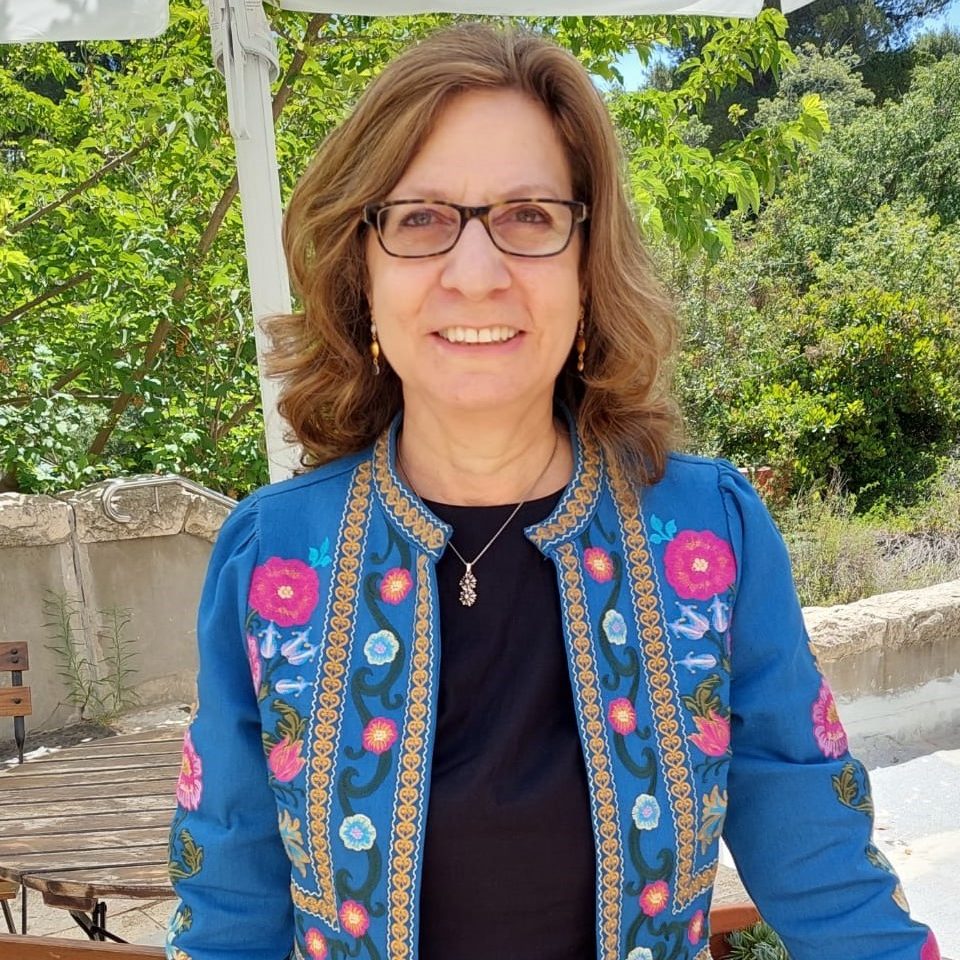Books
- Arabic Between State and Nation: Israel, the Levant and Diaspora.UK: Liverpool University Press. 2022. Here
- The Politics of Arabic in Israel: A Sociolinguistic Analysis. University of Edinburgh Press, 2017. Here
- Language and Identity in the Israel-Palestine Conflict: The Politics of Self-Perception in the Middle East. London: I.B. Tauris Press, 2011. Here
Articles and Book Chapters
Working Papers:
- Camelia Suleiman. May 3, 2023. “Jerusalem and the limits and affordances of sociolinguistics”. WP (Working Papers in Urban Languages and Literacies: Engaging with Contemporary Communicative Practice. 313. https://wpull.org/product/wp313-jerusalem-and-the-limits-and-affordances-of-sociolinguistics/.
Lanuage and the Media:
- Camelia Suleiman and Russell Lucas, “Debating Arabic on al-Jazeera: Endangerment and Identity in Divergent Discourses,” The Middle East Journal of Culture and Communication. Vol. 5, No. 2 (2012), 1-21. Here
- Camelia Suleiman and Daniel O’Connell, “Race and Gender in Current American Politics: A Discourse-Analytic Perspective.” Journal of Psycholinguistic Research. Vol. 37, No.6 (December 2008), 373-389. Here
- Camelia Suleiman and Daniel O’Connell, “Perspective and Gender Differences in the Media Interviews of Bill and Hillary Clinton.” Journal of Psycholinguistic Research. Vol. 37, No. 1 (January 2008), 33-48. Here
- Camelia Suleiman and Daniel O’Connell, “Perspective in the Discourse of War: The Case of Colin Powell,” Pragmatics. Vol. 13, No. 3 (Fall 2003), 401-422. Here
- Camelia Suleiman, Daniel O’Connell, and Sabine Kowal, “Perspective in Political Interviews,” Journal of Psycholinguistic Research. Vol. 31, No. 2 (May 2002), 269-287. Here
- Camelia Suleiman and Daniel O’Connell, “Bill Clinton on the Middle East: Perspective in Media Interviews.” Studies in Language and Capitalism. Vol. 2 (Spring 2007), 75-100.
- “Pronouns and Self Presentation in Public Discourse: Yasser Arafat as a Case Study”, in Yasir Suleiman ed., Language and Society in the Middle East and North Africa. London: Curzon Press. 1999.
Social Media:
- Camelia Suleiman, Ayman Mohamed, Amr Madi “Covid-19 and the Middle East: Social Media Analysis across Political Imaginaries”. In C. Cotter and M.A. Peterson (eds.) Covid Semiotics: Magical Thinking and the Management of Meaning. Routledge, forthcoming.
- Yiftach Ron, Camelia Suleiman and Ifat Maoz (December 2020). “Women for Peace: Promoting Peace through Social Media Dialogue.” Social Media and Society (special issue). Here
Arabic in American Academia:
- “Contending Visions of Arabic Linguistics and their Historical Roots.” Middle East Critique. Vol. 19, No. 2 (July 2010), 115-134. Here
- “The State of Arabic Grammar Books Published in English,” Review essay, MESA (Middle East Studies Association) Bulletin. Vol. 42 (2008), 108-116.
Reflections on Identity
- “Arabic in Michigan: An American Linguistic Landscape”. In Fathiya Al Rashdi and Sandhya Rao Mehta (eds.), Language and Identity in the Arab World, Taylor and Francis, 2022. Here
- “The Arabic Language Ideology and Communication: An Image from Egypt” in Donal Carbaugh, ed., Handbook of Cross-Cultural Communication. Taylor and Francis, 2016. Here
- “Who Am I in America? Reflections on Exile and Social Distress”. Journal of Social Distress and the Homeless. Vol. 17, No. 4 (December 2008), 254-263
Guest Editor
- Kaveh Askari, Marc Bernstein, Swarnavel Eswaran Pillai and Camelia Suleiman “Locating Muslim Cinema: Special Issue, Journal of Religion and Popular Culture, Vol. 33.3 Fall 2021 Here
Selected Other Publications
- “Palestinians”. In John Stone, Rutledge Dennis, Polly Rizova, Anthony Smith, and Xiaoshuo Hou (eds.), The Blackwell Encyclopedia of Race, Ethnicity and Nationalism. 2016. Wiley, Blackwell.
- “Palestine”. In Peter Stearns (ed.) The Oxford Encyclopedia of the Modern World. Oxford. 2008
- “West Bank and Gaza Strip”. In Peter Stearns (ed.), Oxford Encyclopedia of the Modern World. Oxford University Press. 2008
Selected Book Reviews and Notices
- “Book Review of Sahar Khalifeh, My First and Only Love. Translated to English by Aida Bamia. Cairo: American University in Cairo, Hoopoe Press. March 2021, World Literature Today (Spring 2021).
- “Book Review of Yonatan Mendel and Abeer AlNajjar (eds.), Language, Politics and Society in the Middle East: Essays in Honour of Yasir Suleiman. Language 95:3 (September 2019).
- “Book Review of Kristen Brustad, Mahmoud Al-Batal, and Abbas Al-Tonsi, Alif Baa: Introduction to Arabic Letters and Sounds, Third Edition.” Al-Arabiyya, ‘Journal of the American Teachers of Arabic, Vol. 47(2014).
- “Book Review of Faruk Abu-Chacra, Arabic: An Essential Grammar.” MESA Bulletin, Vol. 43, (2009).
